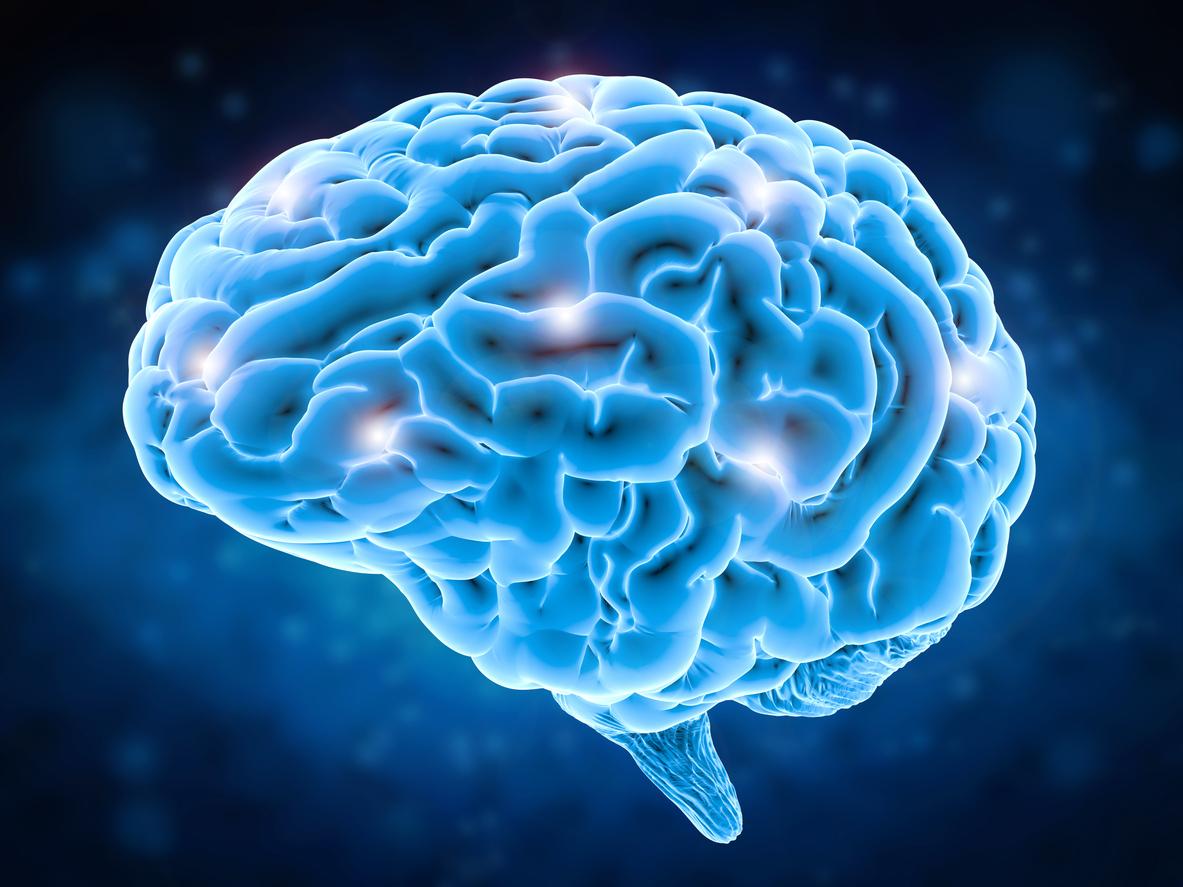As a parliamentary report pointed out in December 2020 which pointed to the “deleterious” effects that the coronavirus crisis had on them, young people are suffering. Why Doctor met Laurent Gerbaud, president of the Association of directors of university health services and doctor director of the student disability health center at Clermont-Auvergne University.

They belong to the categories least at risk from Covid-19 and yet they are also real victims of the health crisis. Upset student paths, complicated integration into the world of work, disappearance of many odd jobs and internships, precariousness, social life prevented: young people are doing badly. Faced with this situation, France lags behind enormously in terms of the number of psychologists present in higher education establishments, with an average of one psychologist for 30,000 students. The point with the president of the Association of directors of university health services and doctor director of the student disability health center at Clermont-Auvergne University, Laurent Gerbaud.
– Why Doctor: Why are there so few psychologists in French universities?
Laurent Gerbaud: Because nobody cares! The situation of psychologists in universities is no different from that of doctors and nurses. University health services are long forgotten. There have been reflections but no policy so far. There have even been regressions. These arrived in the late 90s with the idea that student health was not a problem. Students’ access to social security was a problem, but not their health.
There was a national student life plan in 2015 with a health component, but it was not followed up. He was kind of forgotten. In 2018, a portion of the student and campus life contribution was allocated to the University Health Service. But it’s too little. The problem is deeper and structural. If tomorrow we decide to put more psychologists in the universities, the problem will not be solved because the universities do not have the capacity to accommodate them. There has been no change since the 1970s.
– Why is the psychological monitoring of students difficult?
All departments have contact systems in place. We try to respond to the requests that are made. But the problem is that there are several types of students in distress: those who are not well and who come to see us, those who are not well and recognize it without coming to see us and finally those who don’t know it’s wrong.
The second aspect is that the crisis is also social in addition to its psychological aspect, with a loss of income linked to odd jobs, to parents who lose their jobs. Many students find it difficult to apply for scholarships because asking for help is never easy.
– What are the main concerns of the students?
Students want to study, and studying means going to classes where you can ask questions and challenge the teachers. They also want to live their student life and socialize. They want relative freedom to organize themselves. There is a flexibility in everyday life at the university when you are on site that you do not find with distance learning courses.
We are in the social pathology which has psychiatric consequences. What contributed to the anxiety from the end of September was not knowing how this is all going to evolve. It’s complicated because we have an epidemic that we don’t control. Then there is the problem of the gap between the announcements and what is actually happening. When the President of the Republic announces that students can return once a month when universities have just installed distance learning, it is complicated to organize their return. The same problem arises with meals at 1 euro: the dining rooms of the universities have not reopened so the meals are to be taken away but as it is cold, the students pile up in the halls where the rules of distancing cannot not be respected. There are plenty of contradictory injunctions. We are in the management of the unexpected and that impacts the students. What worries me is knowing that there are students who say nothing and who leave quietly. Those, I don’t know how to touch them. Nobody knows.
– Why does the health crisis and the measures that restrict freedoms particularly affect students?
They are impacted like everyone else but they don’t have the same networks. When you find yourself confined to a family life, it’s not the same as being alone in a small room without a built social network. Those who are in the first year, they passed the baccalaureate after the first confinement, had the start of the school year and then experienced the second confinement. In college, it takes about a month – a month and a half for a student to understand how college works and to start building a network.
– Has their vision of the future changed?
We have elements that suggest it but there is no investigation conducted on this subject. The risk is the difficulty of planning for the future with students who tell us that nothing interests them anymore. In my university (Clermont-Auvergne, editor’s note) there has been a 25% increase in consultations. At the national level, there have been between 20 and 30% more requests. These figures are different depending on the university towns. The larger the city, the more massive the phenomenon. I think the bigger the metropolis, the greater the loneliness. When the structures are smaller, we cross and recross, know and recognize. When the structures are massive, the construction of student sociability is more difficult.
– The International Accreditation Charter for University Mental Health Services (IACS) estimates that one full-time psychologist should be targeted for every 1,500 students. In his report published on November 15 on the mental health of students, the Nightline association estimates that it would take one for 4,000 students. Are these goals achievable?
For the objective of one psychologist for 1,500 students, we are very, very far from it. For that of having a psychologist for 4,000 students, that seems more realistic, but resources are needed: premises, personnel. It won’t happen in a year. It also needs more budget. It’s not enough to have psychologists, you need staff to supervise them, to make appointments. We lack structural elements. There is no status for psychologists or doctors. When we have medical directors of university health services, we will have made great progress. We can pursue policies and take action. We are light years away. The current problem is inherited from the last fifty years. There has been a total and complete disregard for the issue of health at the university. It’s no different from the public hospital.
– In France, consultations with psychologists are not covered by Social Security. Should they be reimbursed?
There is an anomaly: drugs are reimbursed but not psychotherapies. This reality is inherited from the time when social security was set up: psychologists refused to allow doctors to prescribe their interventions and therefore were not reimbursed by social security. There was also at the time a psychoanalytical approach according to which if the patient does not pay for his consultations it means that he will not make the effort to get better. This has had two consequences: when people don’t have the money to pay for a consultation, the only structures available are the CMPs (medico-psychological centres) and, for students, the BAPUs (University psychological aid offices ) which quickly become saturated. They have been saturated for 30 years. The second consequence is that there were no standards to regulate this profession. There has been one for about ten years but they are struggling to be fully effective.
Before the Covid, there was a start of experimentation with outpatient psychiatric care by the Health Insurance, in particular in Morbihan and Marseille. The check for three consultations per student is the result of this experiment.
– Is this the solution?
It is a solution but it is not THE solution. When a student is not doing well, we need to talk to his teachers, the CROUS and the university staff. When there are cases of serious pathology, the care is plural and everyone must come together to find out how to harmonize the studies with the health of the student. The problem of the liberals is that they will never form a plural team, so there will always be a need for the university health teams to intervene to align the course of care and the course of study.
– What are the other axes of solutions?
We need to improve the support network, especially since it takes time. Another problem is the lack of hospital resources. When a student has strong suicidal thoughts and comes back only four days after hospitalization and has just started treatment, it’s a sign that the whole system is sick.
Mental health is above all about sociability and socialization. It is necessary to strengthen cultural and sporting practices that contribute significantly to improving the mental health of students. This needs to be addressed at the university level. Otherwise, it’s alcohol that makes this link and it’s a product that aggravates the psychological situation and creates dependency so it can’t be the solution. You have to have nice university halls, open CROUS points. You need a permanent university life. When we compare with foreign countries, what is striking is the desert that there is in French universities.
– What can you say to students who are in psychological distress?
One must keep. They have to tell themselves that what they are going through is not the future life. You have to hold on to all the relationships they have and if it’s not right, they have to call for help. There is no shame. Let them talk about it to the teachers who are very sensitive to the discomfort of the students and who can help them. I tell them “talk about it around you, to your colleagues”. There are students who contact us for their classmates. At some point there will be a world after and we must keep hoping that it will be better than the world before.
.

















